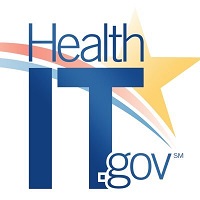 By Kevin Chaney, Allison Dennis and Teresa Zayas Cabán, ONC
By Kevin Chaney, Allison Dennis and Teresa Zayas Cabán, ONC
Twitter: @ONC_HealthIT
With the publication of the ONC Cures Act Final Rule, health IT developers, healthcare providers, and app developers now have formal direction regarding the content and transaction standards required for consumers to access their health information using standards-based application programming interfaces (APIs) and healthcare apps. Building on this work, we’ve launched a new project to help accelerate the understanding and use of standardized APIs and healthcare apps. The Accelerating APIs for Scientific Discovery project is part of ONC’s efforts to spur innovation and adoption of standardized APIs to enable sharing of electronic health information among consumers, providers, and researchers.
An important part of advancing any new technology or changing workflow is understanding the needs of, and impact on, relevant stakeholders. To learn more about the perspectives of key stakeholders, ONC has undertaken an effort to understand their needs, goals, and experiences using standards-based APIs and healthcare apps, which will be disseminated through a series of reports.
Consumer Perspectives on API and App Connectivity
Accelerating API and App Connectivity: Consumer Perspectives is the first of four planned reports that explore the current landscape of API-based health information exchange in a rapidly evolving electronic health data ecosystem.
To understand the needs and challenges of consumers, we spoke with organizations that represent a broad group of stakeholders– consumer advocates and representatives from healthcare consumer groups, advocacy organizations, consumer-facing health IT developers, and other non-profit organizations to learn:
- What motivates consumers to use healthcare apps?
- How can we increase the value and utility of healthcare apps?
- What are characteristics of high-value healthcare apps?
- How do we ensure and increase consumer awareness and trust of healthcare apps?
- How can we increase healthcare app awareness and adoption for consumers?
We learned that when describing the consumer experience with health IT, including portals and healthcare apps, there are two core components necessary to sustain interest and use:
- the data must be interoperable, detailed, accurate, and timely; and
- the healthcare app must reduce the amount of time consumers spend obtaining their data and achieving their specific objective.
While we heard positive sentiments about the potential of APIs and healthcare apps to expand consumer control over their health data, we also heard strong privacy and security concerns about healthcare apps and devices that reuse and sell data, and the lack of clarity about how those data are used.
Patient-generated health data sharing could also expand the type and scale of data available for researchers and clinicians, thereby improving the scientific process and, ultimately, enhancing clinical care through better evidence. In 2021, we plan to release reports summarizing perspectives and needs from researchers; data aggregators, data integrators, and app developers; and providers.
Learn more about APIs and healthcare apps
Learn more about APIs and apps at the following ONC resources:
Accelerating APIs for Scientific Discovery: Main ONC homepage for the Accelerating APIs for Scientific Discovery project that includes links to project activities aimed at increasing use of APIs and healthcare apps by consumers, researchers, and providers.
Sync for Science: Learn more about the Sync for Science pilot that used standards-based APIs to support consumers in sharing their health information within provider electronic health records (EHRs) with the All of Us Research Program.
API Learning Module: An interactive and video-based training module aimed at providers and consumers with a basic overview of how APIs work and can support access to health information.
This post was originally published on the Health IT Buzz and is syndicated here with permission.
